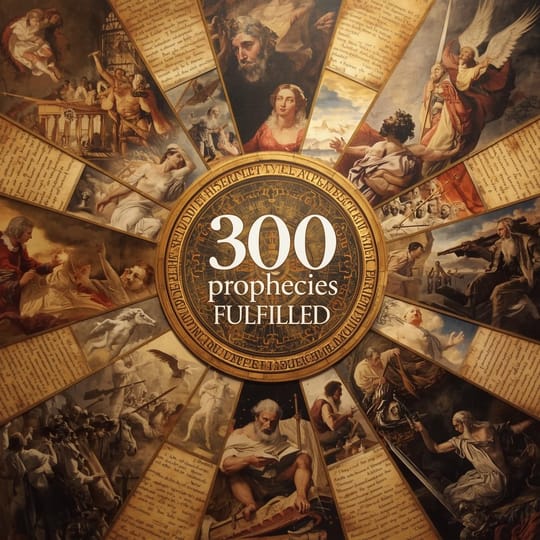Question: What Old Testament Laws Are Christians Supposed to Follow Today?
Answer: Christians are supposed to follow the spirit of the law in that it teaches us to remain in covenant with God. Understanding the OT means we realize not all laws were considered binding for all time. Let's talk about it.
When many people open the Bible, they are quickly overwhelmed by the laws found in the Old Testament. Some seem obvious (“Do not steal.”), others confusing (“Do not wear clothes woven of two kinds of material.”). So what are Christians today supposed to do with these ancient commands?
Understanding the Law: Three Categories
First, as Thomas Schreiner explains in his book 40 Questions About Christians and the Biblical Law, the Old Testament law can be understood in three main categories:
- Moral Law – Commands that reflect God's eternal character (e.g., 10 Commandments).
- Civil Law – Laws that governed Israel as a nation-state (e.g., property laws, penalties for theft).
- Ceremonial Law – Laws about sacrifices, festivals, and religious purity (e.g., sacrifices, kosher eating).
This breakdown, while traditional, is a useful starting point. Moral laws are timeless. Civil and ceremonial laws pointed forward to Christ and were fulfilled by His coming.
The Fulfillment of the Law in Christ
Martin Luther emphasized that Christ is the fulfillment of the Law. We are no longer bound to the ceremonial and civil aspects of the Old Covenant because Jesus completed them through His life, death, and resurrection.
N.T. Wright expands this idea by saying that Jesus didn't "abolish" the Law but fulfilled its purpose — showing how true love for God and neighbor is the heart behind every command (see Matthew 5:17-20).
The BEMA Podcast frequently highlights that the Law was about forming a covenant community centered on God's presence and justice. In Christ, this purpose is now embodied in the Church, a people called to live out God's Kingdom ethic.
Freedom and Identity in Christ
Neil Anderson reminds us that Christians are no longer under the Law as a means of salvation. Our identity is now found in Christ, not in perfect law-keeping. However, we are called to walk in the Spirit (Galatians 5:16–25), reflecting God's character through love, joy, peace, patience, kindness, goodness, faithfulness, gentleness, and self-control — all of which are the "fruit" that the moral law pointed toward.
A Balanced Approach to Old Testament Law
Norman Geisler provides a helpful principle in his book Christian Ethics:
"The Old Testament law is valid unless it has been explicitly revoked or fulfilled in the New Testament."
This means if the New Testament reaffirms a law (like the call to sexual purity, honesty, or honoring parents), it remains binding in principle.
If the New Testament fulfills a law (like animal sacrifices), it no longer applies in the same way.
So What Laws Should Christians Follow?
Here's a summary of the idea...
| Type of Law | Christian Response |
|---|---|
| Moral Law (e.g., love your neighbor) | Still binding as it reflects God's eternal character. |
| Civil Law (e.g., penalties for theft in ancient Israel) | Not binding, but principles of justice and fairness still apply. |
| Ceremonial Law (e.g., sacrifices, dietary laws) | Fulfilled in Christ; not binding. |
Christians are called to follow the moral teachings of Scripture, live by the law of love, and walk by the Spirit.
Next Steps
If you want to faithfully apply God's Word in light of these truths, here are a few steps you can take:
1. Study the Law Through the Lens of Jesus
- When you read Old Testament laws, ask: How did Jesus fulfill this?
- Read Matthew 5–7 (the Sermon on the Mount) for Jesus' interpretation of God's commands.
2. Focus on Heart Transformation
- Instead of asking "What laws must I keep?", ask "How can I reflect God's love and holiness today?"
3. Embrace Freedom Responsibly
- We are free from the Law as a means of salvation, but not free to live selfishly.
- Freedom in Christ leads to loving God and loving others deeply.
4. Learn from Both Testaments
- Study both the Old and New Testaments to better understand God's full story of redemption.
- The Old Testament shows God's faithfulness; the New Testament shows its fulfillment in Jesus.
5. Walk by the Spirit
- Daily depend on the Holy Spirit to guide your actions, not just rigid rule-following (Galatians 5:16).
Bottom Line.
As Christians, we are not lawless — we are fulfilled in Christ, called to walk in love, and empowered by the Holy Spirit.
The Old Testament still matters — not as a checklist — but as a treasure chest revealing God's character and pointing us to Jesus.
"Christ is the end of the law for righteousness to everyone who believes." (Romans 10:4)









